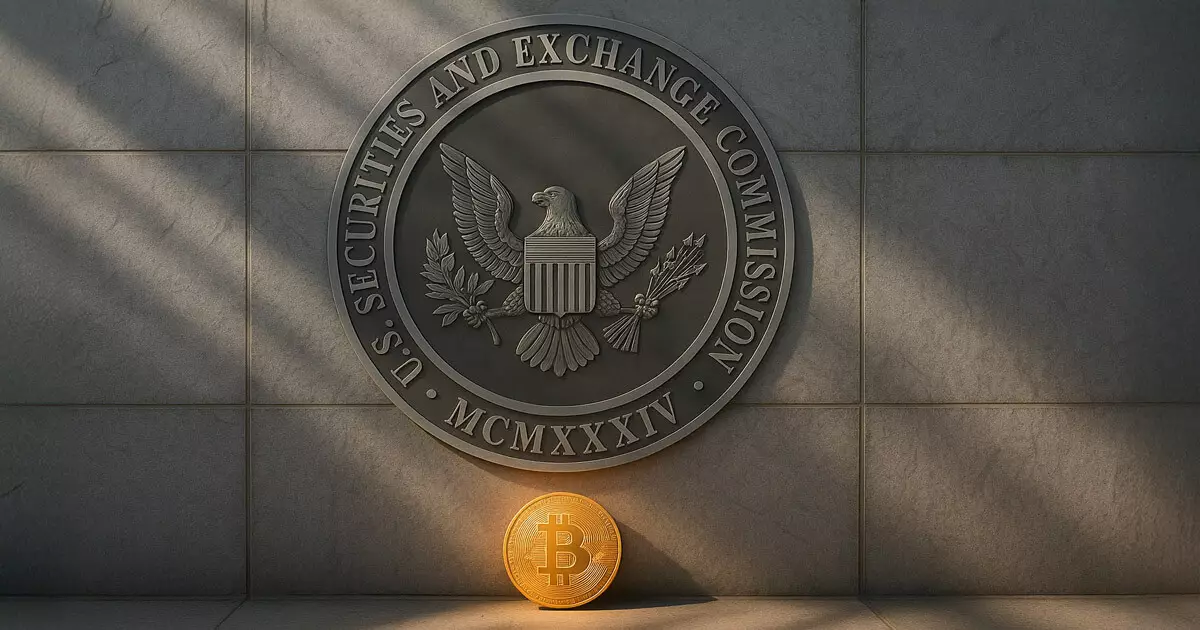The U.S. Securities and Exchange Commission (SEC) is currently reviewing an astounding 72 crypto-related exchange-traded fund (ETF) filings, a move that signifies a paradigm shift in financial markets. This extensive list, reported by Bloomberg’s senior ETF analyst Eric Balchunas, encompasses a broad spectrum of assets—from established cryptocurrencies like XRP and Litecoin (LTC) to the quirky world of meme coins such as Dogecoin (DOGE). The sheer range of proposed ETFs, including thematic products focused on internet culture like Pudgy Penguins, illustrates a dynamic and rapidly evolving industry.
While crypto enthusiasts laud these initiatives, I am left wondering if this is a genuine breakthrough or merely a trend set to fizzle out. The SEC, traditionally cautious in its dealings with cryptocurrency, has begun to entertain applications for spot ETFs connected to significant assets like Solana and XRP. This could either enhance the market’s legitimacy or contribute to its volatility, pushing cryptocurrencies into the mainstream but also exposing inexperienced investors to the inherent risks.
A Level Playing Field or a Dangerous Speculative Jungle?
The current landscape of proposed ETF strategies isn’t confined to conventional spot ETFs. Companies like ProShares and Tuttle Capital are advocating for leveraged and inverse products that appeal to a demographic keen on speculative trading. While these provide tailored exposure to crypto price swings, they also embody a risk that cannot be ignored. Investors may find themselves making purchases on a whim, simply following trends rather than conducting thorough research. As someone inclined toward center-right liberalism, I view this as a potential orange flag—it seems irresponsible to encourage trading behaviors that mirror gambling more than investing.
Despite the influx of altcoin and meme coin ETF proposals, it is crucial to acknowledge Bitcoin’s iron grip on the crypto landscape. Balchunas indicates that Bitcoin ETFs currently comprise roughly 90% of the global crypto fund assets. Even with new entrants making their debut, projections show that Bitcoin will likely maintain an impressive 80-85% share of the market over the long term. This steadfast dominance could offer some stability in an otherwise chaotic sector, but it also means Bitcoin’s shadows loom over every new development.
The SEC’s Role and Future Implications
The upcoming decisions by the SEC, many of which extend into mid-2025, will significantly influence the degree to which traditional financial markets incorporate cryptocurrency exposure. The Commission’s cautious approach reflects its responsibility to mitigate systemic risks; however, such diligence must be balanced against the urgent need for innovation in a rapidly digitizing economy. We are at a crossroads where allowing robust participation in the crypto market can empower the sector but also risk destabilizing traditional financial systems if not managed correctly.
In this light, I see the SEC’s proactive review of these 72 ETF filings as a double-edged sword. Are we ushering in a new era of financial democratization, or are we setting ourselves up for chaos when these speculative vehicles don’t meet the high expectations surrounding them? Only time will tell, but one thing is certain: the stakes have never been higher, and the outcomes could reshape financial landscapes for generations to come.

